- Home
- Michael Connelly
Lost Light (2003) Page 6
Lost Light (2003) Read online
Page 6
Conversely, if she had been a willing participant in the robbery scheme, it seemed likely to the investigators that her death would have come after the robbery had been successfully accomplished.
It seemed like a solid theory to me as Lawton Cross had recounted it during my first visit to his home. It was probably the way I would have gone if I had been allowed to stay on the case. But ultimately the theory didn’t pay off. Cross told me that he and his partner had worked a full field investigation on Benton but never came across the one clue that opened up the case. They spent five solid months on her. They traced her movements, personal habits and daily-life routines. They studied her credit-card, banking and telephone data. They interviewed and re-interviewed all family members and known friends and associates. They spent eight days in Columbus alone. Dorsey went to Phoenix to chase down a single hundred-dollar bill. They spent so much time at Eidolon Productions that for one month they were given their own office at Archway Pictures in which to conduct interviews.
And they got nothing.
As is often the case with a homicide, they amassed a wealth of knowledge about the victim but not the key piece of information that led to the identity of her killer. They ended up knowing who she had slept with in college but not where she had spent the last evening of her life. They knew her last meal had been Mexican—the corn tortillas and beans were still in her digestive tract—but not which one of the city’s thousands of such establishments had served her.
And after six months on the case they found absolutely no link between Angella Benton and the robbery, aside from the surface connection of her job as a production assistant for the company that was making the film in which the cash was to play a starring role.
Six months in and they were at a dead end. What they did have in the way of evidence were the forty-six slugs and shell casings collected after the shoot-out, the blood collected from the getaway van and the semen collected from the murder scene. It was all good evidence to have; ballistics and DNA could tie a suspect to a crime with zero doubt—unless your lawyer was Johnnie Cochran. But it was the kind of evidence that was icing on a cake; the kind that links a suspect and weapon already identified and usually in custody. It didn’t do much as far as getting you that suspect. After half a year on it they had the icing but no cake to put it on.
When they reached this dead end it was time to evaluate the case at the six-month mark. This is the point where hard choices are made. The probability of clearing the case is weighed against the need for the pair of investigators to work other cases and help shoulder the caseload of the division. Their supervisor took the case off full-time status and Dorsey and Cross went back into rotation at RHD. They were free to work the Benton case as often and as much as possible, but they also drew new investigations. As could be expected, the Benton case suffered for it. Cross had readily admitted this to me. He said it became a part-time investigation, with Dorsey doing most of the follow-up while Cross concentrated on the new cases they were assigned.
Then it all became academic when the pair got shot up in Nat’s bar in Hollywood. The Benton case went into the OU files. Open-Unsolved. And it was orphaned. No detective likes a hand-me-down file, which the Benton case was. No one likes the idea of going into a file and proving his colleagues were wrong or misguided or possibly even incompetent or lazy. Added to this deterrent was the fact that the Benton case was now haunted. Cops are a superstitious species. The fate of the two original investigators—one dead, the other in a chair for life—was somehow inextricably bound to the cases they had worked, whether directly related or not. Nobody, and I mean nobody, was going to take on the Benton case now.
Except me. Now that I was out of the official game.
And four years later, I had to trust that Cross and Dorsey had done their job well in the investigation of Angella Benton’s death and its connection to the robbery. I had no choice really. Covering the ground they had already trod to a dead end didn’t seem to be the way to go. That was why I went to see Taylor. My plan was to accept their investigation as thorough if not flawless and approach it from a different direction. I was operating on the belief that Cross and Dorsey found nothing linking Benton to the robbery because there was nothing to find. Her death had been part of a plan, a carefully planned misdirection within a misdirection. I now had a list with nine names on it that had come out of my three-mile ride with Taylor. All the people involved in the planning of the money shoot. Everyone—as far as he knew—with knowledge that the cash was coming, when it was coming and who would bring it. I would go from there.
But now I had been thrown a curveball of sorts; what Cross had told me about the serial numbers and how at least one of them had been wrong. He said he had left it to Dorsey to pursue and didn’t know what had happened. Shortly thereafter Dorsey was dead and the case died with him. But now I was interested. It was an anomaly and it had to be dealt with. Coupled with Kiz Rider’s warning and oblique reference to “these people,” I felt something stirring inside that had been absent for a long time. A small tug toward the darkness I one time knew so well.
8
I drove back into Hollywood and ate a late lunch at Musso’s. A Ketel One martini for openers, followed by chicken pot pie, creamed spinach on the side. A good combination, but not good enough to make me forget about Lawton Cross and his situation. I asked for a second martini to help with that and tried to concentrate on other things.
I hadn’t been back to Musso’s since my retirement party and I missed the place. I had my head down and was reading and writing some notes when I heard a voice in the restaurant that I recognized. I looked up and saw Captain LeValley being led to a table with a man I didn’t recognize. She was commander of the Hollywood Division, which was only a few blocks away. Three days after I’d left my badge in a desk drawer and walked out she called to ask me to reconsider. She almost convinced me but I said no. I told her to send in my papers and she did. She didn’t come to my retirement party and we hadn’t spoken since.
She didn’t see me and sat with her back to me in a booth far enough away that I could not hear her conversation. I left by the back way without finishing the second martini. In the lot I paid the attendant and got in my car, a Mercedes Benz ML55 that I’d bought used from a guy moving to Florida. It had been the one big extravagance I allowed myself after retiring. In my mind the ML55 stood for Money Lost: $55,000, because that was what I paid for it. It was one of the fastest sport utility vehicles on the road. But that wasn’t really why I bought it. The low mileage on it wasn’t the reason either. I bought it because it was black and it blended in. Every fifth car in L.A. was a Mercedes, or so it seemed. And every fifth one of them was a black M-class SUV. I think maybe I knew where I was going long before I started the journey. Eight months before I would need it I’d bought an automobile that would serve me well as a private investigator. It had speed and comfort, it had dark smoked windows, and if you looked in your mirror and saw one of these behind you in L.A. it wouldn’t cause a second thought.
The Mercedes took some getting used to. In terms of comfort as well as routine operation and maintenance. In fact, I had already run out of gas on the road twice. It was one of those little things that came with giving up the badge. For several years before my retirement I had been a detective third grade, a supervisory-level position that came with a take-home car. That car was a Ford Crown Victoria, the Police Interceptor model that rode like a tank, had vinyl wash-off seats, heavy-duty suspension and the expanded gas tank. I never needed gas when on the job. And the car was routinely refueled at the station by the guys from the motor pool. As a citizen I had to re-learn to watch the needle. Or else I found myself sitting on the side of the road.
From the center console I retrieved my cell phone and turned it on. I’d had little need for a cell phone but had kept the one I carried on the job. I don’t know, maybe I thought somebody from the division would call and ask my advice on a case or something. For four months I kept i
t charged and turned it on every day. Nobody ever called. After the second time I ran out of gas I plugged it into the charger in the center console and left it there for the next time I would need roadside assistance.
Now I needed assistance but not of the roadside variety. I called information and got the number for the Federal Bureau of Investigation in Los Angeles. I called the number and asked for the supervisory agent in the bank squad. I figured the agent that had contacted Dorsey might have worked in the unit that handled bank robberies. It was the unit that most often dealt with currency numbers.
My call was transferred and picked up by someone who simply said, “Nunez.”
“Agent Nunez?”
“Yes, what can I help you with?”
I knew that handling a supervising FBI agent would not be the same as handling the secretary of a movie mogul. I had to be as up-front as I could with Nunez.
“Yes, my name is Harry Bosch. I just retired from the LAPD after about thirty years and I —”
“Good for you,” he said curtly. “What can I do for you?”
“Well, that’s what I’m trying to tell you. About four years ago I was working a homicide case that was connected to a large cash robbery involving currency that had been recorded.”
“What case?”
“Well, you probably won’t recognize it by case name but it was the murder of Angella Benton. The murder preceded the robbery, which took place on a movie set in Hollywood. It made a big splash. The bad guys got away with two million dollars. Eight hundred of the hundred-dollar bills had been recorded.”
“I remember it. But we did not work it. We had noth—”
“I know that. Like I told you, I worked the case.”
“Then go on, what can I do for you?”
“Several months into the case an agent from your office contacted the LAPD to report an anomaly in the recorded numbers. She had received the list of serials because we had sent it all over.”
“An anomaly, what is that?”
“An anomaly is a deviation, something that doesn’t —”
“I know what the word means. What anomaly are you talking about?”
“Oh, sorry. This agent called and said one of the numbers was a misprint or a couple of the numbers got inverted, something like that. But that’s not what I’m calling about. She said she had a computer program that cross-referenced and cross-matched numbers from these sorts of cases. I think it was her own program, something that she worked up on her own. Does any of this ring a bell? Not the case but the agent. An agent who had this program. A female agent.”
“Why?”
“Well, because I have misplaced her name. Actually, I never got it because she spoke to one of the other investigators on the case. But I would like to speak to her, if I could.”
“Speak to her about what? You said you are retired.”
I knew it would come to this, and this is where I was weak. I had no station, no validity. You either had a badge that opened all doors or you didn’t. I didn’t.
“Some cases die hard, Agent Nunez. I’m still working it. Nobody else is, so I figured I’d take the shot. You know how it is.”
“No, actually, I don’t. I’m not retired.”
A real hard-ass. He was silent after that and I found myself getting angry with this faceless man who was probably trying to balance a burdensome caseload with a lack of manpower and funding. L.A. was the bank robbery capital of the world. Three a day was the norm and the FBI had to respond to every one of them.
“Look, man,” I said. “I don’t want to waste your time. You can either help me or not. You either know who I am talking about or you don’t.”
“Yeah, I know who you’re talking about.”
But then he was silent. I tried one last angle. I had held it back because I wasn’t sure I wanted it known in some circles what I was doing. But the visit from Kiz Rider sort of shot that down anyway.
“Look, you want a name, somebody you can check me out with? Call over to Hollywood detectives and ask for the lieutenant. Her name is Billets and she can vouch for me. She won’t know anything about this though. As far as she knows, I’m swinging in a hammock.”
“All right, I’ll do that. Why don’t you call me back? Give me ten minutes.”
“Right. I will.”
I closed the phone and checked my watch. It was almost three. I started the Mercedes and drove down to Sunset and headed east. I turned on the radio but didn’t like the fusion that was playing. I turned it back off. At the ten-minute mark I pulled to the curb in front of the Splendid Age Retirement Home. I picked up the phone to call Nunez back and it rang in my hand. I thought maybe Nunez had caller ID on his line and had gotten the number. But then I remembered I had been transferred to his line. I didn’t think an ID record could jump with a transfer.
“Harry Bosch.”
“Harry, it’s Jerry.”
Jerry Edgar. It was turning into old home week. First Kiz Rider and now Jerry Edgar.
“Jed, how you doing?”
“I’m fine, man. How’s the retiring life?”
“It’s very restful.”
“You don’t sound like you’re on the beach, Harry.”
He was right. The Splendid Age was just yards from the Hollywood Freeway and the din of gas-combustion machinery was ever present. Quentin McKinzie told me that they house the Splendid Age residents with hearing loss in the rooms on the west side because they are closer to the noise.
“I’m not a beach guy. What’s up? Don’t tell me that eight months after I’m gone you actually want to ask my advice on something?”
“Nah, it’s not that. I just got a call from somebody who was checking you out.”
I was immediately embarrassed. My pride had led me to conclude that Edgar needed me on a case.
“Oh. Was it a bureau agent named Nunez?”
“Yeah, he didn’t say what it was about, though. You starting a new career or something, Harry?”
“Thinking about it.”
“You ever get your private ticket?”
“Yeah, about six months ago, just in case. I stuck it in a drawer somewhere. What did you tell Nunez? I hope you said I was a man of high moral standing and courage.”
“Absolutely not. I gave him the straight dope. I said you could trust Harry Bosch about as far as you could throw him.”
I could hear the smile in his voice.
“Thanks, man. You’re a pal.”
“I just thought you should know. You want to tell me what’s going on?”
I was silent for a moment as I thought about this. I didn’t want to tell Edgar what I was doing. Not that I didn’t trust him. I did. But as a rule I operated under the belief that the fewer people who know your business the better.
“Not right now, Jed. I’m late for an appointment and have to get going. But I’ll tell you what—you want to catch lunch one of these days? I’ll tell you all about my exciting life as a pensioner.”
I sort of laughed as I said the last line and I think it worked. He agreed to lunch but said he’d have to call me back about it. I knew from experience it was difficult to schedule a lunch ahead of time when you were working homicide. What would happen was that he would call on the morning he had a lunch free. That was the way it worked. We said we’d stay in touch and ended the call. It was nice to know that he apparently wasn’t carrying the same anger as Kiz Rider over my abrupt departure from our partnership and the department.
I called the bureau back and was put through to Nunez.
“You get a chance to make that call?”
“Yeah, but she wasn’t there. I talked to your old partner.”
“Rider?”
“No, his name was Edgar.”
“Oh, yeah. Jerry. How is he doing?”
“I don’t know. I didn’t ask. I’m sure you did when he just called you.”
“Excuse me?”
He had nailed me.
“You can skip the bullshit, Bo
sch. Edgar told me he felt obligated to call you and let you know someone was checking you out. I said that was fine with me. I asked him for your number so that way I would know I was dealing with the real Harry Bosch. He gave it to me and when I tried to call a couple minutes ago it was busy. I figure you were talking to Edgar, so I don’t appreciate your little dumb-guy dance.”

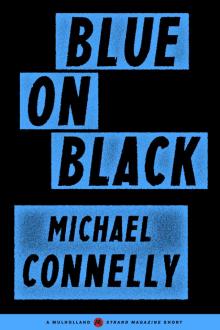 Blue on Black
Blue on Black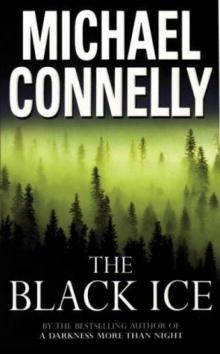 The Black Ice (1993)
The Black Ice (1993) Crime Beat: A Decade of Covering Cops and Killers
Crime Beat: A Decade of Covering Cops and Killers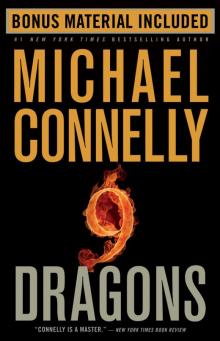 Nine Dragons
Nine Dragons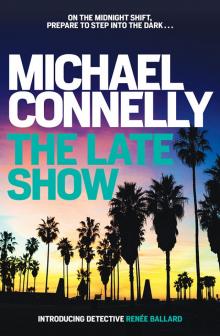 The Late Show
The Late Show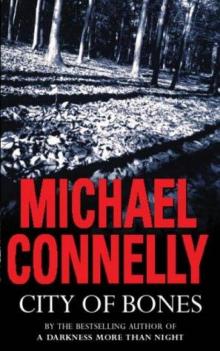 City of Bones
City of Bones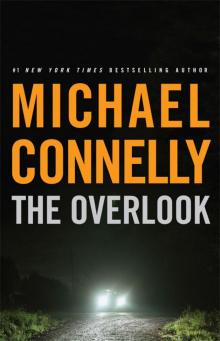 The Overlook
The Overlook The Crossing
The Crossing The Poet (1995)
The Poet (1995)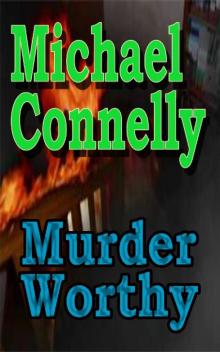 Murder Worthy
Murder Worthy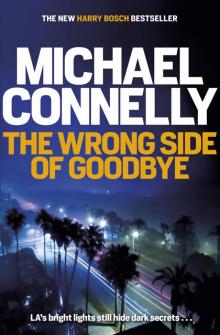 The Wrong Side of Goodbye
The Wrong Side of Goodbye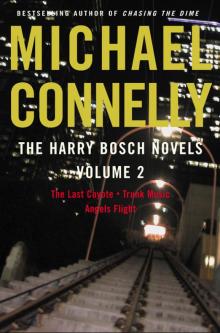 Harry Bosch Novels, The: Volume 2
Harry Bosch Novels, The: Volume 2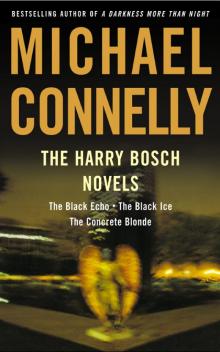 The Harry Bosch Novels
The Harry Bosch Novels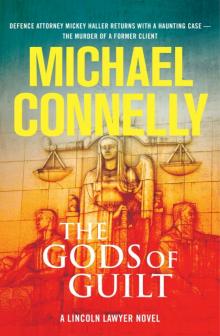 The Gods of Guilt
The Gods of Guilt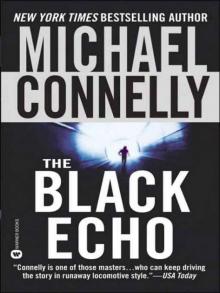 The Black Echo
The Black Echo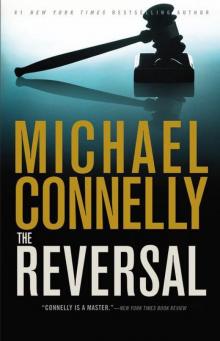 The Reversal
The Reversal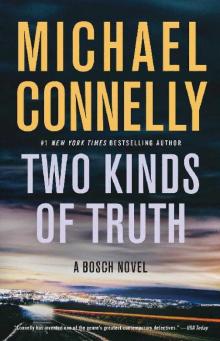 Two Kinds of Truth
Two Kinds of Truth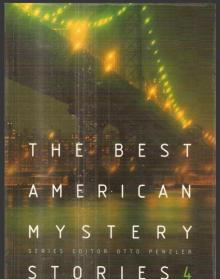 The Best American Mystery Stories 2003
The Best American Mystery Stories 2003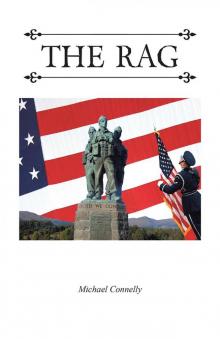 The Rag
The Rag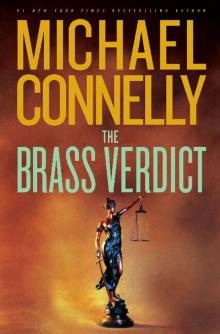 The Brass Verdict
The Brass Verdict The Black Echo (1992)
The Black Echo (1992)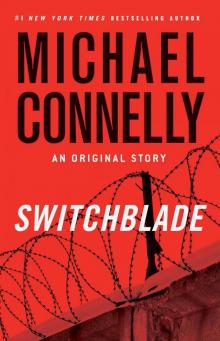 Switchblade
Switchblade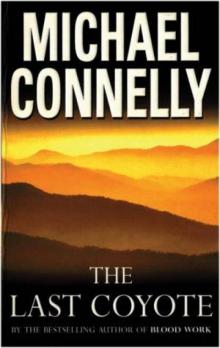 The Last Coyote
The Last Coyote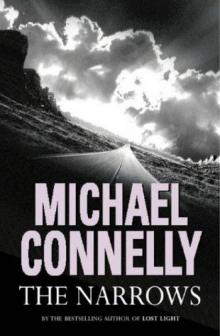 The Narrows
The Narrows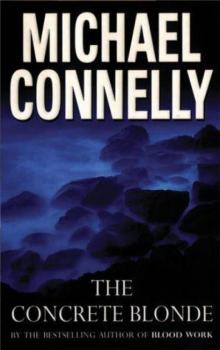 The Concrete Blonde (1994)
The Concrete Blonde (1994)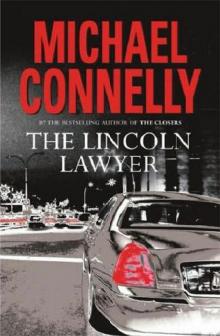 THE LINCOLN LAWYER (2005)
THE LINCOLN LAWYER (2005)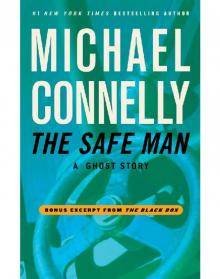 The Safe Man: A Ghost Story
The Safe Man: A Ghost Story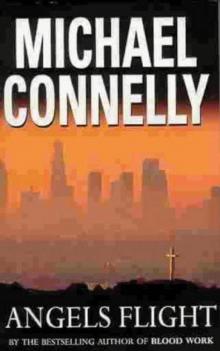 Angels Flight (1998)
Angels Flight (1998) Void Moon
Void Moon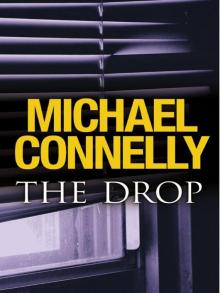 The Drop
The Drop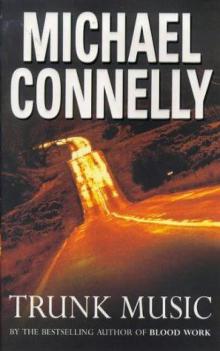 Trunk Music
Trunk Music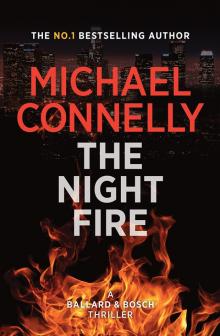 The Night Fire
The Night Fire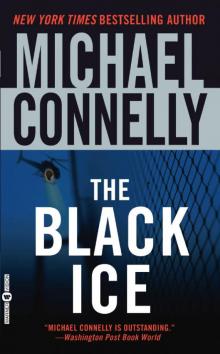 The Black Ice
The Black Ice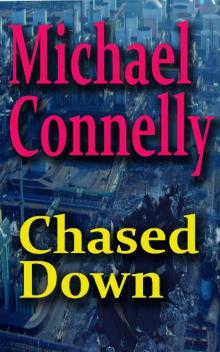 Chased Down
Chased Down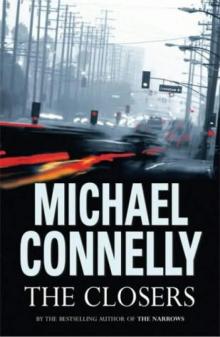 The Closers
The Closers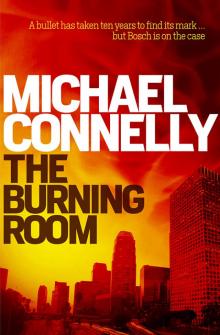 The Burning Room
The Burning Room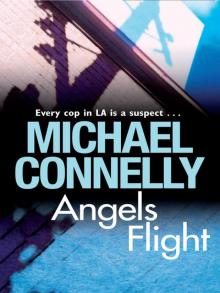 Angels Flight
Angels Flight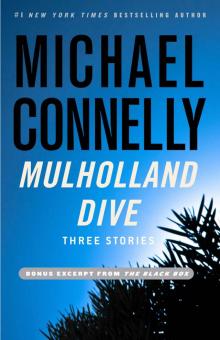 SSC (2012) Mulholland Drive
SSC (2012) Mulholland Drive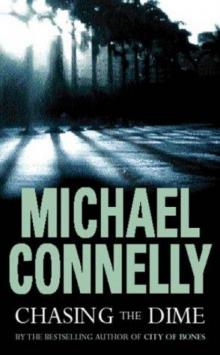 Chasing the Dime
Chasing the Dime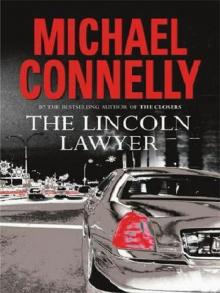 The Lincoln Lawyer
The Lincoln Lawyer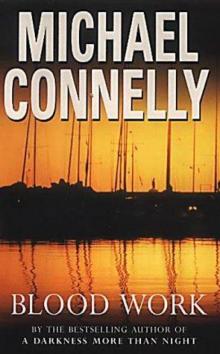 Blood Work (1998)
Blood Work (1998)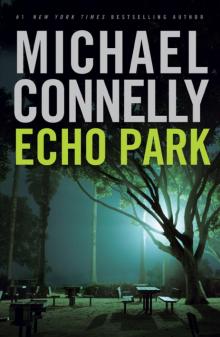 Echo Park
Echo Park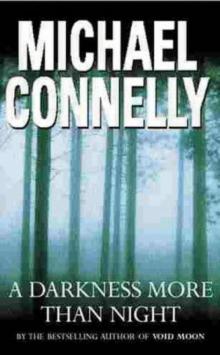 A Darkness More Than Night
A Darkness More Than Night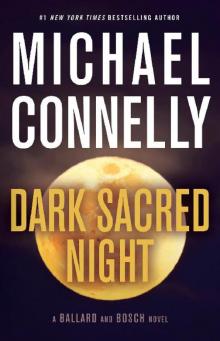 Dark Sacred Night - Ballard and Bosch #1;Renée Ballard #2
Dark Sacred Night - Ballard and Bosch #1;Renée Ballard #2 Lost Light
Lost Light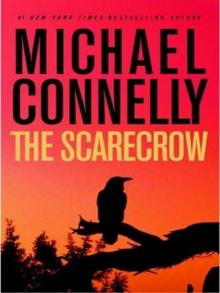 The Scarecrow
The Scarecrow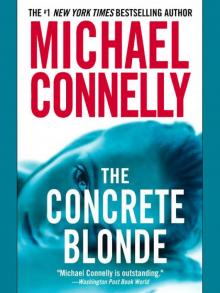 The Concrete Blonde
The Concrete Blonde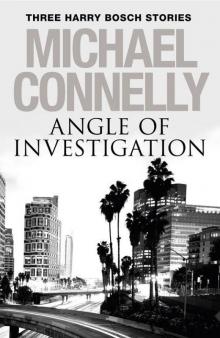 Angle of Investigation
Angle of Investigation Suicide Run: Three Harry Bosch Stories
Suicide Run: Three Harry Bosch Stories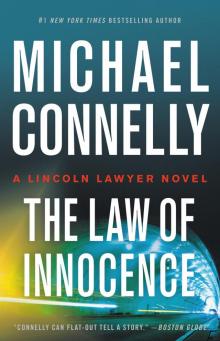 The Law of Innocence
The Law of Innocence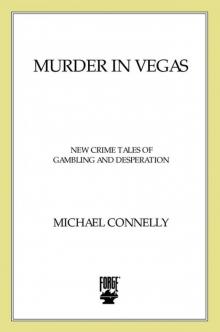 Murder in Vegas: New Crime Tales of Gambling and Desperation
Murder in Vegas: New Crime Tales of Gambling and Desperation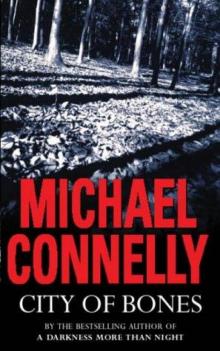 City Of Bones (2002)
City Of Bones (2002)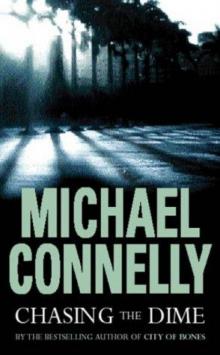 Chasing the Dime (2002)
Chasing the Dime (2002)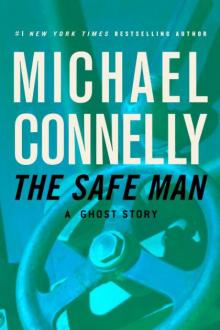 The Safe Man
The Safe Man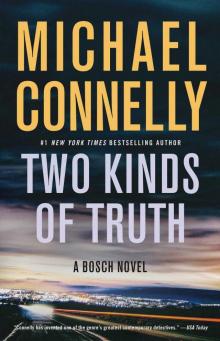 Two Kinds of Truth (A Harry Bosch Novel)
Two Kinds of Truth (A Harry Bosch Novel)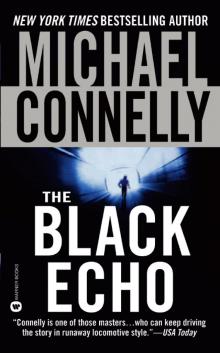 Harry Bosch 01 - The Black Echo
Harry Bosch 01 - The Black Echo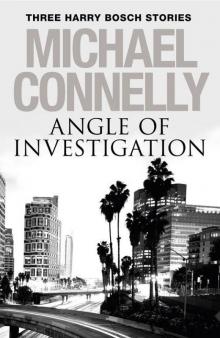 Angle of Investigation: Three Harry Bosch Short Stories
Angle of Investigation: Three Harry Bosch Short Stories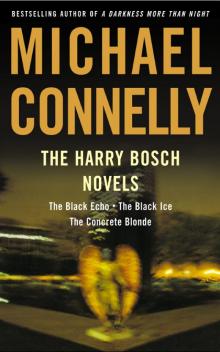 The Harry Bosch Novels Box Set 1
The Harry Bosch Novels Box Set 1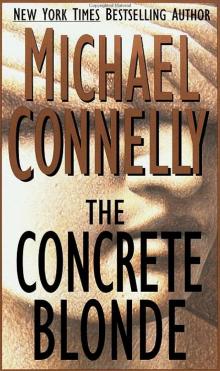 The Concrete Blonde hb-3
The Concrete Blonde hb-3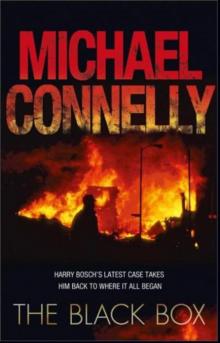 The Black Box hb-18
The Black Box hb-18 Short Stories
Short Stories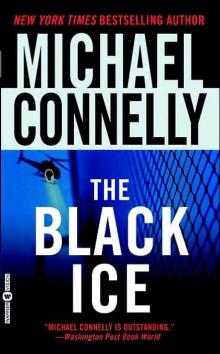 The Black Ice hb-2
The Black Ice hb-2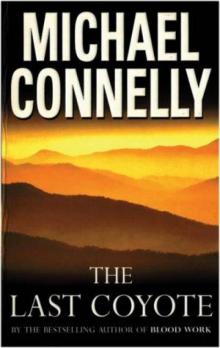 The Last Coyote (1995)
The Last Coyote (1995)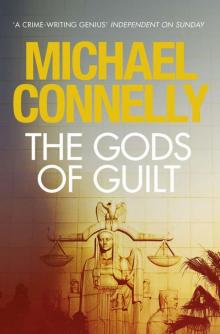 The Gods of Guilt mh-5
The Gods of Guilt mh-5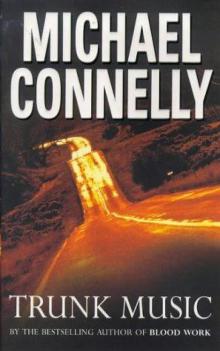 Trunk Music (1996)
Trunk Music (1996)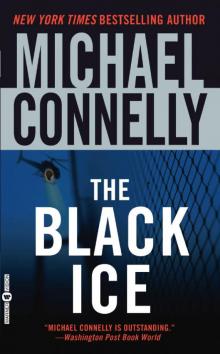 Harry Bosch 02 - The Black Ice
Harry Bosch 02 - The Black Ice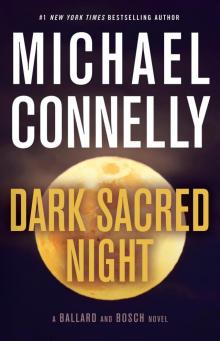 Dark Sacred Night
Dark Sacred Night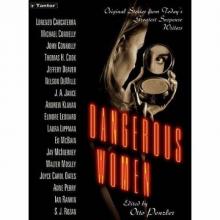 Cielo Azul
Cielo Azul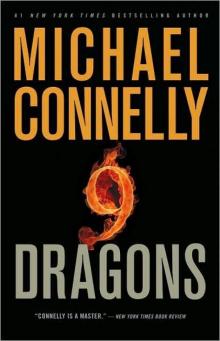 9 Dragons
9 Dragons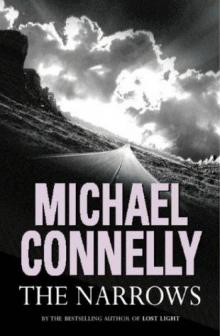 The Narrows (2004)
The Narrows (2004)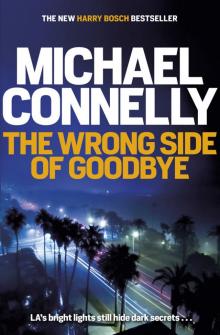 The Wrong Side of Goodbye (Harry Bosch Series)
The Wrong Side of Goodbye (Harry Bosch Series)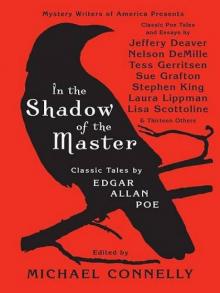 In The Shadow Of The Master: Classic Tales by Edgar Allan Poe
In The Shadow Of The Master: Classic Tales by Edgar Allan Poe Void Moon (1999)
Void Moon (1999)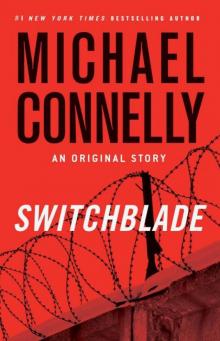 Switchblade: An Original Story (harry bosch)
Switchblade: An Original Story (harry bosch)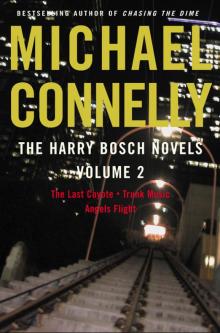 The Harry Bosch Novels, Volume 2
The Harry Bosch Novels, Volume 2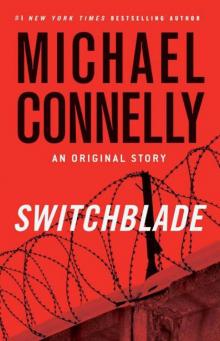 Switchblade: An Original Story
Switchblade: An Original Story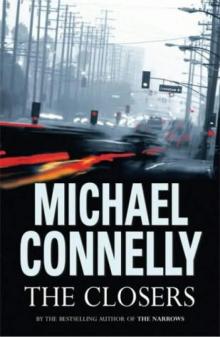 The Closers (2005)
The Closers (2005) Crime Beat
Crime Beat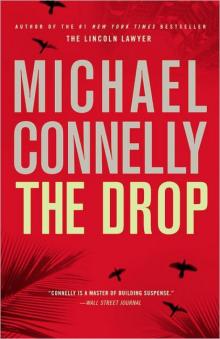 The Drop hb-17
The Drop hb-17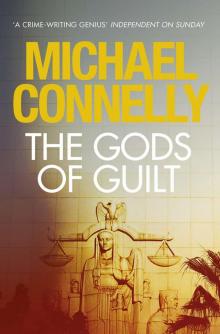 The Gods of Guilt (Mickey Haller 5)
The Gods of Guilt (Mickey Haller 5)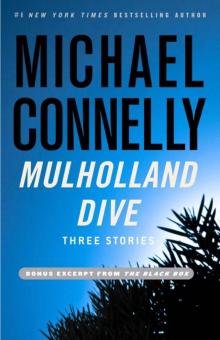 Mulholland Dive: Three Stories
Mulholland Dive: Three Stories Lost Light (2003)
Lost Light (2003)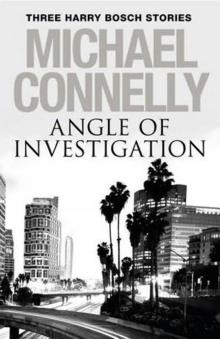 Angle of Investigation: Three Harry Bosch Stories
Angle of Investigation: Three Harry Bosch Stories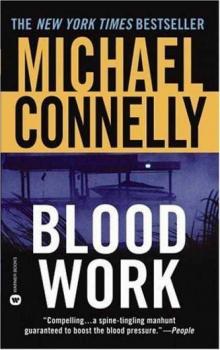 Blood Work
Blood Work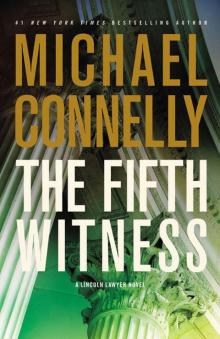 The Fifth Witness: A Novel
The Fifth Witness: A Novel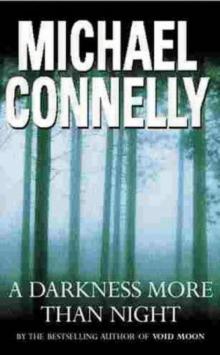 A Darkness More Than Night (2000)
A Darkness More Than Night (2000)